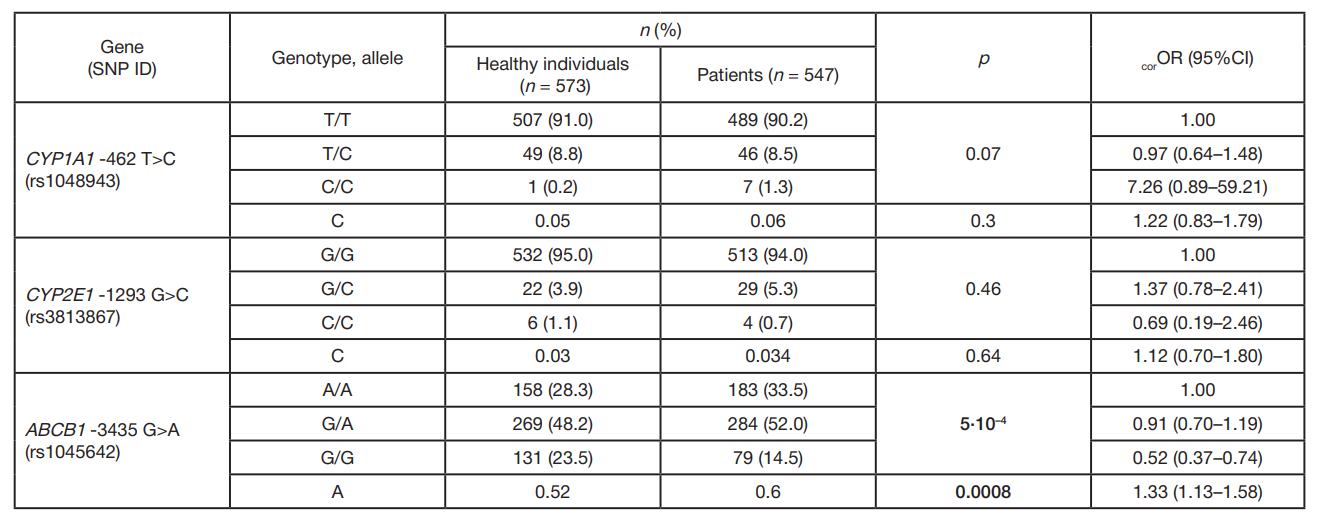
This article is an open access article distributed under the terms and conditions of the Creative Commons Attribution license (CC BY).
ORIGINAL RESEARCH
The role of some xenobiotic biotransformation genes SNP in the development of acute pancreatitis
Kursk State Medical University, Kursk, Russia
Correspondence should be addressed: Tatiana A. Samgina
K. Marksa, 3, 305000; Kursk, ur.tsil@ssat
Author contribution: Samgina TA conceived and designed the study, conducted clinical and molecular-genetic tests, analyzed and interpreted the obtained data, and wrote the manuscript; Nazarenko PM supervised surgical treatment and postoperative care at Kursk City Clinical Hospital № 4 and recruited patients for the study; Polonikov AV supervised genetic testing; Lazarenko VA supervised the study.





